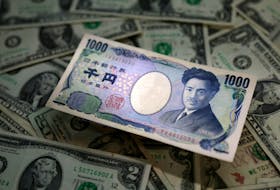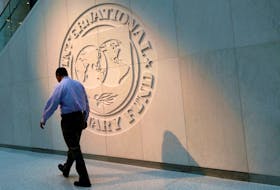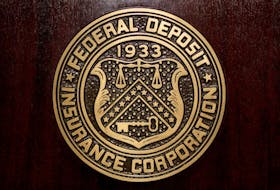By Vaughn Hammond
March is Pharmacist Awareness Month and is a time to celebrate the great contribution pharmacists make to the health-care system and our communities. Unfortunately, this year, many pharmacy owners in Newfoundland and Labrador aren’t in a celebratory mood.
You might be surprised, but independent pharmacy owners are having a tough time. Because the government sets pricing, pharmacy owners are restricted in how they cover costs, especially ever-increasing costs associated with regulation.
Recently, independent pharmacy owners have been adjusting to new generic drug prices. These changes have meant as much as a 20 per cent decrease in revenues for many pharmacy owners. The result, in a number of cases, has been layoffs or a reduction in pharmacy hours. New generic drug pricing was meant to help lower government health care budgets, but there is no indication this has happened in Newfoundland and Labrador.
Pharmacy owners can deliver other services, but the catch is, they won’t be compensated for them. At every turn, the provincial government is, for all intents and purposes, telling them how to run their businesses. They are simply over-governed.
Most concerning is generic price changes are creating unprecedented shortages of those drugs, putting the health of patients at risk.
In addition, Newfoundland and Labrador has a drug formulary. This means the government sets the prices pharmacy owners can charge for drugs and, by extension, the profit they make. Not only that, the dispensing fee is currently set through the provincial government’s agreement with the pharmacist’s association, re-negotiated just recently and surprisingly without ratification by pharmacy owners. Pharmacy owners can charge a lower dispensing fee, but it cannot be higher.
The costs of operating an independent pharmacy have grown exponentially in recent years. For instance, in 2019, the Newfoundland and Labrador Pharmacy Board (NLPB) increased the licensing fees for pharmacies nearly 40 per cent and almost 25 per cent for pharmacists and pharmacy technicians compared to the year before. As a result, the licensing costs for a pharmacy owner with two pharmacists and two pharmacy technicians increased by $1,300 per year.
Pharmacies have also had to sign on to the NL Pharmacy Network, which electronically tracks filled prescriptions.
The cost to join the network is thousands of dollars, though it is ineffective because it cannot track all prescriptions, especially those prescriptions filled by out-of-province pharmacies. The network has serious shortcomings and no one wishes to accept this, or worse, chooses to ignore it.
Furthermore, pharmacy owners are wondering why they are being so strictly regulated. Patient safety is important for them, but, in their opinion, they are being asked to implement solutions that are unnecessary.
For example, why is it necessary to buy a $5,000 “state-of-the-art” refrigerator for medications that require a certain temperature, when their pharmaceutical-grade refrigerators worked fine? Yet, any cold-chain medication ordered online is not regulated in the same manner because the NLPB does not have jurisdiction. It’s an obvious double-standard.
The NLPB is undertaking its mandate to serve and protect the public with vigour. But, implementing the standards and policies of the NLPB is costly and failure to do so “to the letter” results in fines that can also be costly. Further, the NLPB is over-reaching in its mandate. For example, it dictates how pharmacy owners can promote themselves on social media. The NLPB is certainly not concerned about the business of pharmacy.
All of this has an effect on health-care delivery in the province. For instance, many may be aware there is an opioid crisis on Bell Island that has had dire consequences.
The sole pharmacy on the island would have offered a new Suboxone and methadone dispensing service as a cost-effective alternative, but offsetting the cost of the service does not fit under the agreement with the pharmacist’s association.
Pharmacy owners can deliver other services, but the catch is, they won’t be compensated for them. At every turn, the provincial government is, for all intents and purposes, telling them how to run their businesses. They are simply over-governed.
Independent pharmacies, especially in rural communities, can be integral to the improved health and safety of Newfoundlanders and Labradorians. Yet, the province is at risk of losing these vital partners without substantial change.
Vaughn Hammond is Newfoundland and Labrador Director of Provincial Affairs for the Canadian Federation of Independent Business. He writes from St. John’s

![['CFIB']](https://saltwire.imgix.net/cfib-3040943.jpg?cs=srgb&fit=crop&h=568&w=847&dpr=1&auto=format%2Ccompress%2Cenhance)







